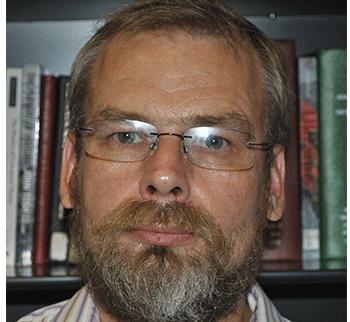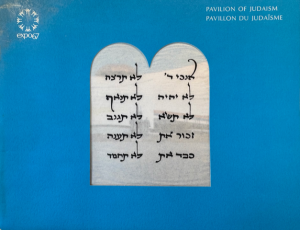Prof. Vassili Schedrin and theatre director Mikhail Nosovsky have teamed up to create a Russian dramatization of the life of Soviet-Jewish actor Solomon Mikhoels which they will be presenting at Winter Limmud FSU on Feb. 11, at the Schwartz-Reisman Centre.
Schedrin, a Jewish history professor at Queen’s University, is currently in the process of researching and writing an “unwritten autobiography” about the life of Mikhoels, who was not only an actor, but the artistic director of the Moscow State Jewish Theatre and chairman of the Jewish Anti-Fascist Committee during the Second World War.
Schedrin has had an interest in him ever since he was an undergraduate student in Moscow, when in 1993, he accidentally discovered a play by Mikhoels which was considered to be lost until that point. Schedrin also explained that he is writing this autobiography based on Mikhoels’ published and unpublished writings, as well as the roles he played and conceived throughout his theatrical career.

“Mikhoels himself stated once that the calendar of his roles is the calendar of his life, so his roles incorporated the experience of his entire life,” said Schedrin. “My purpose is to write a biography that doesn’t debunk the myth but to open the public to the real Mikhoels, from the inside, and show what motivated him and what moved him.”
Schedrin said that after meeting Nosovsky at the Limmud FSU conference in March 2017, they decided to create a dramatization of this unwritten autobiography that Schedrin is working on. After much editing and reworking, the final product is a Russian dialogue that is between a scholar, played by Schedrin, and Mikhoels, who will be played by Nosovsky.
“Without [Nosovsky], this project would never be realized, so I’d say that he is a very important contributor to this project. When we rehearsed and prepared the script, I learned a lot from him,” said Schedrin. “He’s helping to bring it on stage and show it to the public.”
READ: PROGRAM EDUCATES RUSSIAN-SPEAKING STUDENTS ON JEWISH IDENTITY
Schedrin explained that while reading a piece by Mikhoels where he talks about his role as King Lear, a role he is very well-known for, he “heard his voice” and began to understand the inner workings of this quite elusive person.
This particular article, which was part of a much larger collection of Mikhoels’ published articles, stood out to Schedrin because he realized how integral this role was for Mikhoels, and it also included Mikhoels’ own analysis of his theatrical work as a part of his life.
Schedrin also said that Mikhoels’ life is “neatly divided into 29 years,” and that there is very little known about his first 29 years. “In the second 29 years, from 1919-1948, he was a star and a household name in the Soviet Union – not just in the Jewish homes. We know his life almost minute by minute,” said Schedrin.
“His biography is sort of a blank spot in the Soviet-Jewish history, however Mikhoels himself is a very important figure,” said Schedrin. “He contributed so much to Soviet-Jewish art, the Soviet war effort during the Second World War, and the collection of material about the holocaust because of his informal status as the leader of the Soviet Jews.”
He also said that there is not much known about the inner motivations of Mikhoels. He had spent many years pursuing the legal profession, and attended the law school in St. Petersburg, which was considered to be one of the best law schools in the Soviet Union. All this was very much against the odds, as Jews were typically not allowed to go into the legal field during that time.
“We don’t know why he became an actor in the first place. It was almost impossible for Jews to be lawyers in the Russian empire, and at any moment during those first 29 years, he could have become a Yiddish actor,” said Schedrin. “This is the problem with him – in a way, we know just half of him.”
Schedrin and Nosovsky’s performance will allow them to help change that, as they will be presenting much of Schedrin’s research and academic content in a new and artistic way. “Today’s scholars are not like the scholars of the past. They try to make their research available to wider segments of the general public, not only to their students or their colleagues,” explained Schedrin.
“Presenting research in the form of an engaging on-stage performance, is a chance to, for me, to present the research to the wider audiences first, and get a sort of a feedback – this interaction will give me a sort of impulse for what will work.”






